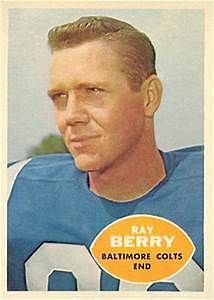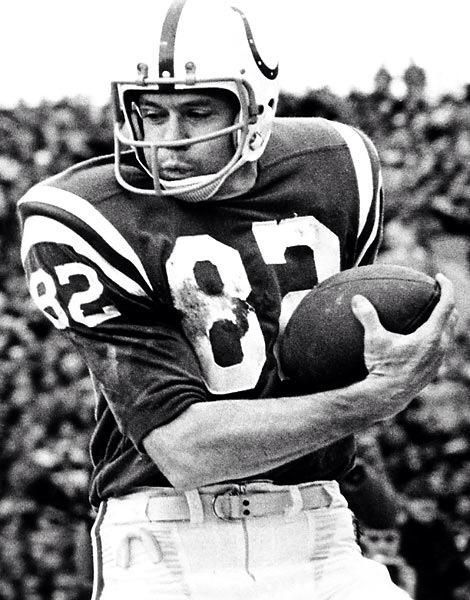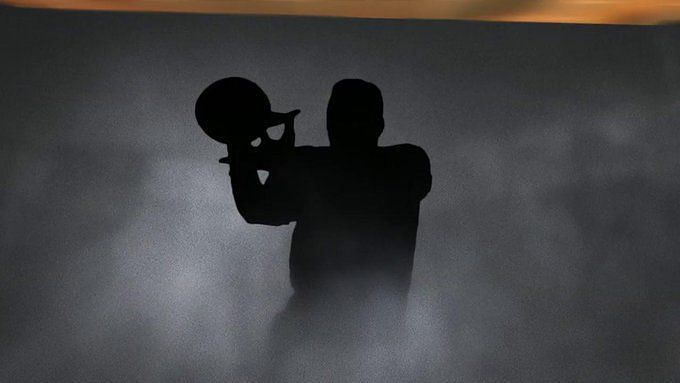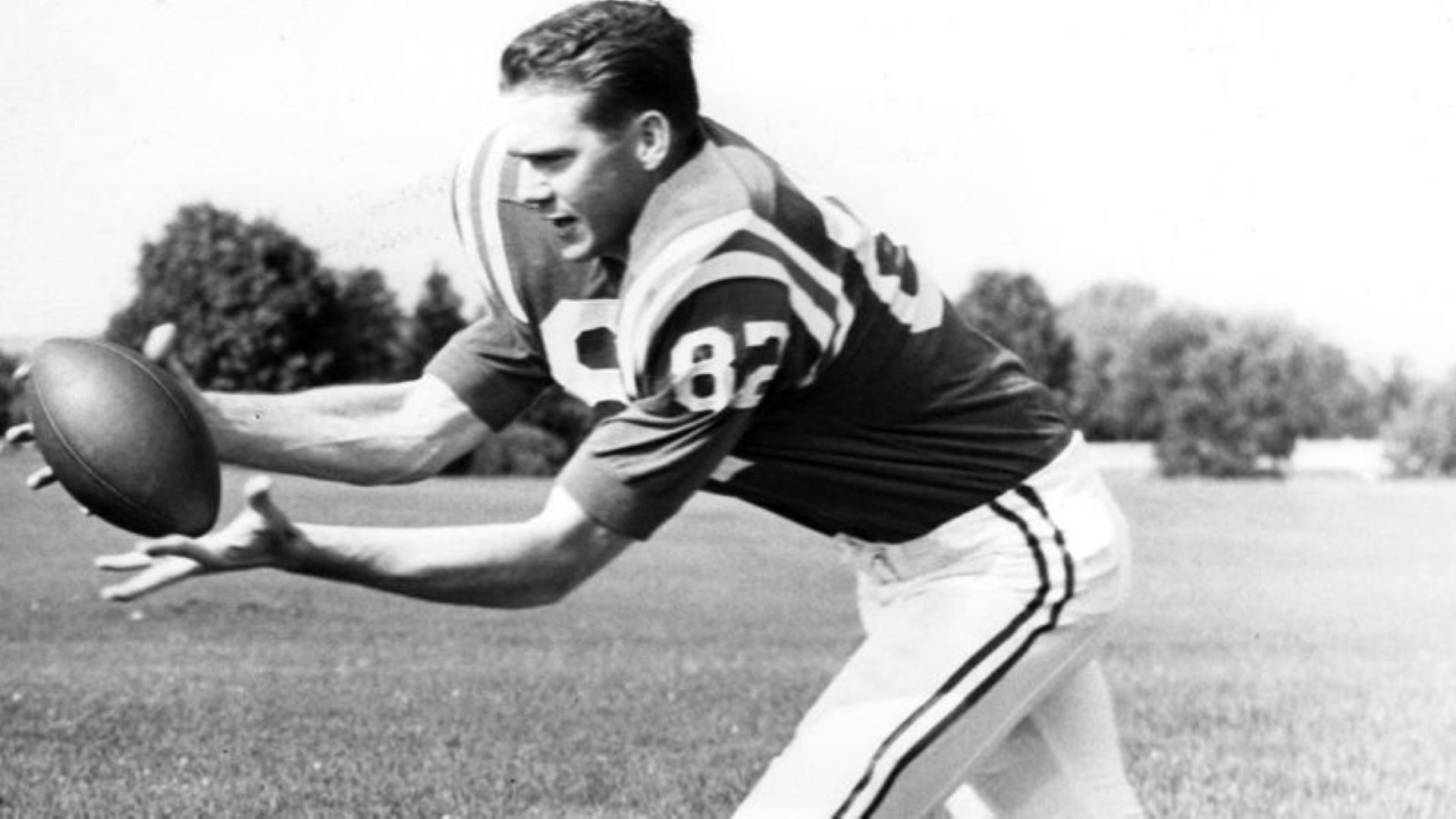
NFL Countdown: Raymond Berry's legacy a script for the perfect Cinderella story
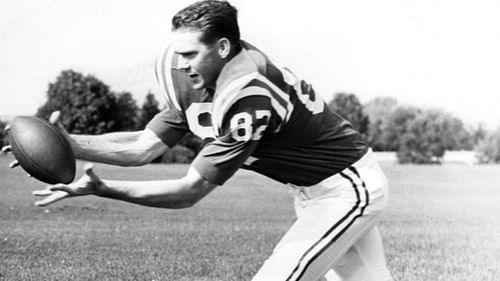
Raymond Berry's NFL career was a true Cinderella story. Starting as a 20th-round draft choice, considered nothing more than a camp body, with little hope of making an NFL roster, but finishing off as a first-ballot Hall of Famer.
The odds were already stacked against him long before he reached the professional game. He couldn't make it onto the field in high school until his senior year, even though his father was the head coach. If your father doesn't believe in your abilities, that's a pretty sad indictment.
But even from an early age, he was already demonstrating one of the qualities that would define his career: his unrelenting determination.
He would attend Southern Methodist University after spending a year in junior college, but his college career had little to write home about.
During his three-year stint at SMU, Berry, who played as a Split End, caught thirty-three passes, which he attributed to his poor eyesight. Despite this, he signed his intention to register for the NFL draft, with many believing he had little chance of being selected.
Raymond Berry, the greatest 20th-round pick of all-time
The consensus was that he would go undrafted; however, there was one person who believed his name would be called, and that was Berry himself. As it turns out, he was correct, as the Baltimore Colts made him their 20th and final selection in 1954, but his chances of still being on the roster come week one were slim. As it turned out, a slim chance was all he needed.
He was used very little in his first season but did just enough to hang around on the roster. But everything changed in his second year after the Colts acquired quarterback Johnny Unitas.
Unitas, who had been drafted the previous year by Pittsburgh but cut before the season started, was playing semi-professional football for the Bloomfield Rams, earning $6 a game. To supplement his income and support his young family, he took a job working in construction before being offered a trial by the Colts.
Berry and Unitas soon struck up an excellent understanding, and the diminutive split end became the number one target for the new Baltimore signal caller. Together, the quarterback signed off the street, and the receiver, whose own father didn't rate him, would go on to form one of the most prolific quarterback/receiver tandems in league history.
In total, Berry would play for thirteen seasons in the NFL, twelve in partnership with Johnny Unitas. By the time his playing career was over, he had caught 631 passes for 9,275 yards and 68 touchdowns and retired as the NFL record holder for receptions and receiving yards.
He wasn't the quickest. In fact, he described himself as having average speed and was considered undersized and not physically cut out for the rigors of professional football. He had to overcome an array of physical ailments to make it onto the field and was written off by most who assessed him.
But Berry did have a burning desire to succeed and the dedication to make his dreams a reality. His practice methods are the stuff of legend, and he would famously practice his route running to the exact inch. He made up for what he lacked in genetic traits by outworking everybody and spending extra hours on the practice field each day.
NFL historians consider the pinnacle of his career to be the 1958 NFL Championship Game against the New York Giants, otherwise referred to as "The Greatest Game Ever Played." The match-up is viewed by many as the game that sparked the birth of the modern NFL and was the first time that overtime had been played during a playoff game in front of a national TV audience of 45 million.
In that game, Berry and Unitas would combine for 12 catches for 178 yards and a touchdown as the Colts overcame the Giants 23-17 in overtime. Raymond Berry is a true Cinderella story, the likes of which are rarely seen in today's NFL, but his achievements are a reminder of what is possible if you are prepared to back yourself and work harder than everyone else.
